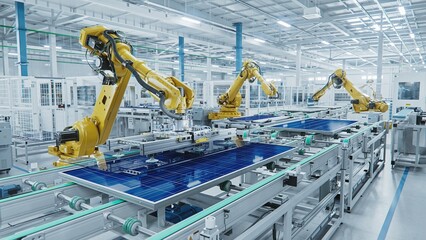
Introduction
Automation has revolutionized the car manufacturing industry, introducing unmatched levels of efficiency, precision, and quality. From robotic assembly lines to advanced AI-driven analytics, these technologies are transforming vehicle production, resulting in faster turnaround times, reduced costs, and improved safety measures.
Outline
- Introduction to automation in car manufacturing
- Key areas of automation in the industry
- Robotic Assembly Lines
- Automated Guided Vehicles (AGVs)
- Computer Numerical Control (CNC) Machining
- 3D Printing
- Automated Inspection Systems
- Collaborative Robots (Cobots)
- Supply Chain Automation
- Data Analytics and AI
- Detailed exploration of automation technologies
- Impact of automation on the car manufacturing industry
- Future trends and innovations in automotive automation
- Conclusion
- FAQs
Background
Automation in car manufacturing has seen substantial advancements with the integration of AI, machine learning, and robotics. Leading companies like Nissan, Ford, Honda, and Chrysler have adopted these technologies to maintain competitiveness in the global market.
Detailed Content
Robotic Assembly Lines
Robotic arms and automated machinery are central to modern car manufacturing, executing tasks such as welding, painting, and assembly with exceptional precision and consistency. These robots minimize errors, enhance product quality, and reduce recalls, thereby boosting customer satisfaction.
Automated Guided Vehicles (AGVs)
AGVs play a crucial role in material handling and intra-facility transportation. Equipped with sensors, these autonomous vehicles navigate manufacturing plants efficiently, transporting parts between workstations to streamline production processes.
Computer Numerical Control (CNC) Machining
CNC machines are essential for fabricating intricate metal and plastic components. Programmed with precise instructions, these machines operate autonomously to ensure components meet rigorous quality standards, reducing the need for manual labor.
3D Printing
Additive manufacturing, particularly 3D printing, is increasingly used for rapid prototyping and custom component production. This technology speeds up design iterations, cuts lead times, and lowers costs compared to traditional manufacturing methods.
Automated Inspection Systems
Automated inspection systems use vision technologies and sensors to enforce strict quality control throughout the manufacturing process. These systems swiftly detect defects, verify assembly accuracy, and measure dimensions, maintaining high standards and preventing defective products from reaching the market.
Collaborative Robots (Cobots)
Cobots work alongside human operators in tasks requiring flexibility and precision. Designed for safe interaction with humans, these robots assist in parts handling and assembly, enhancing productivity while ensuring workplace safety.
Supply Chain Automation
Automation extends beyond factory floors into supply chain operations. Robotics and AI optimize inventory management, streamline order fulfillment, and improve logistics efficiency, leading to cost reductions and timely delivery of materials and components.
Data Analytics and AI
Car manufacturers leverage data analytics and AI to optimize production workflows, predict maintenance needs, and enhance overall operational efficiency. AI algorithms analyze vast datasets from sensors and production systems, enabling informed decision-making and continuous process improvement.
Impact of Automation on the Industry
Automation has accelerated production cycles, improved product quality, and enabled greater product customization in car manufacturing. Additionally, it has reduced operational costs and enhanced worker safety by automating hazardous tasks, allowing companies to adapt swiftly to market changes and regulatory requirements.
Future Trends and Innovations
The future of automotive automation will likely introduce advancements such as autonomous mobile robots, advanced AI for predictive maintenance, and more sophisticated cobots. These innovations promise increased operational agility, flexibility, and sustainability across vehicle manufacturing processes.
Conclusion
Automation has become a cornerstone of transformation in the car manufacturing sector, delivering substantial benefits such as enhanced efficiency, elevated quality standards, and improved workplace safety. As technological advancements continue, ongoing innovation in automation will shape a future characterized by heightened productivity and sustainability in car manufacturing.
FAQs
What are robotic assembly lines? Robotic assembly lines use robotic arms and automated machinery to perform tasks like welding, painting, and assembly with exceptional precision and consistency.
What are AGVs and how do they contribute to car manufacturing? Automated Guided Vehicles (AGVs) are autonomous vehicles employed for material transport within manufacturing facilities, optimizing efficiency and productivity.
How does CNC machining support car manufacturing? CNC machines fabricate metal and plastic components with precision, facilitating the production of complex parts with minimal human intervention.
What role does 3D printing play in car manufacturing? 3D printing accelerates prototyping and custom component production, reducing lead times and costs associated with traditional manufacturing techniques.
How do automated inspection systems ensure quality control? Automated inspection systems utilize vision systems and sensors to detect defects, verify assembly accuracy, and maintain stringent quality standards throughout the manufacturing process.